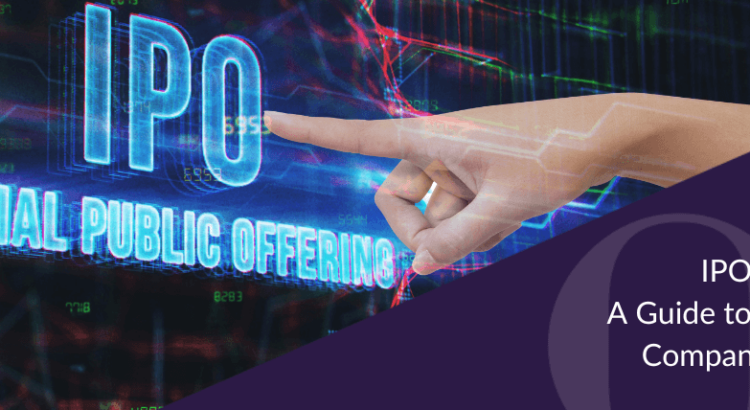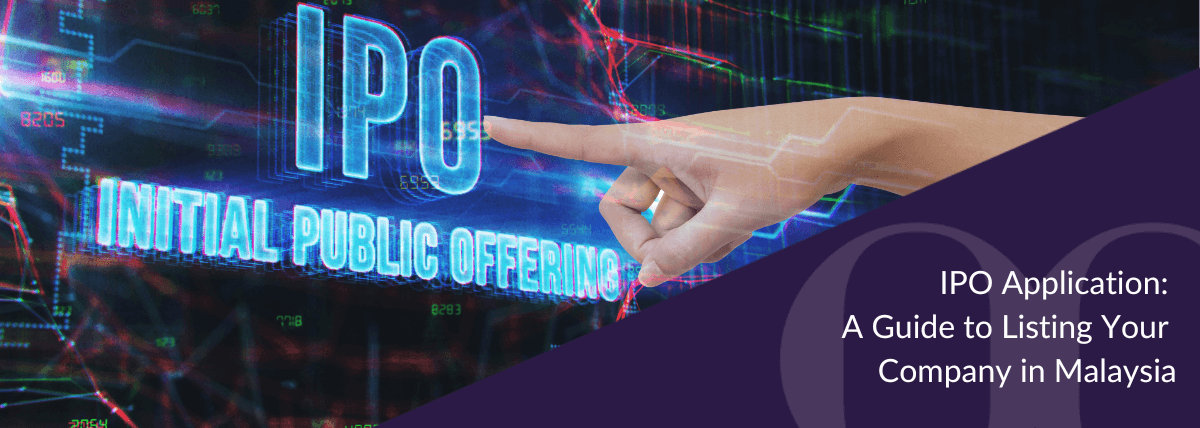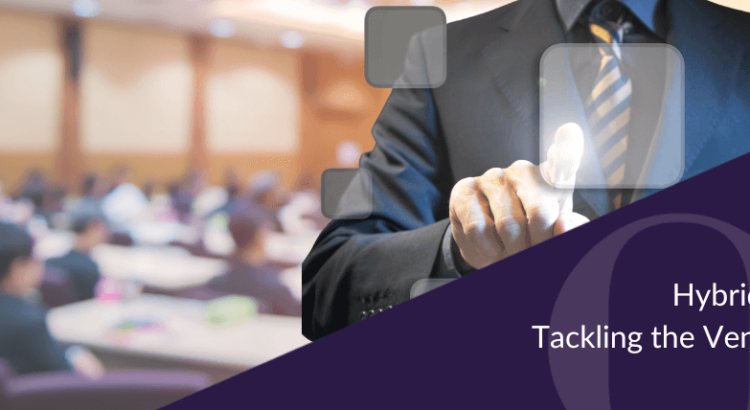An Initial Public Offering (IPO) marks a significant milestone in a company’s journey, allowing it to transition from private ownership to a publicly traded entity. Malaysia stands out as a compelling listing destination for companies considering an IPO. With a robust regulatory framework, diverse investor community, and vibrant capital market ecosystem, Malaysia offers a conducive environment for companies to unlock their growth potential and thrive in the competitive business landscape.
Benefits of Getting Publicly Listed
Getting your company listed on an exchange provides many benefits, some of which are:
Eligibility and Requirements
When it comes to IPO application and listing your company on Bursa Malaysia, there are a few things to consider:
- Listing Boards: Bursa Malaysia offers different boards where companies can list their shares. These include the Main Market for the listing of established companies, ACE Market which is a sponsor-driven alternative market for companies with growth prospects, and LEAP Market which is an advisor-driven market for high-growth potential companies to raise capital and access funding from sophisticated investors.. Each board has its own set of rules and requirements.
- Criteria: Companies must meet certain criteria to be eligible for IPO application and listing. This includes showing profitability, having a good track record, and meeting corporate governance standards such as having independent directors.
- Minimum Share Capital: There are also requirements for the minimum amount of share capital that a company must have for it to be listed on the exchange.
Understanding these eligibility criteria and requirements is essential for companies considering an IPO in Malaysia.

The Listing Process
Embarking on the journey of IPO application and listing your company on Bursa Malaysia involves several important steps.
Overview of the Steps
It begins with initial planning and preparation, where the company evaluates its readiness for going public. This is followed by the submission of the IPO application to the exchange, due diligence processes, prospectus development, and eventually, listing day.
Importance of Professional Advisors
Seeking guidance from professional advisors such as investment banks and solicitors is crucial throughout the IPO application process. These experts provide valuable insights, assist in navigating regulatory requirements, and ensure compliance with listing rules.
Key Milestones During the IPO Application Process
By understanding and effectively navigating through these key milestones, companies can successfully execute their IPO application and achieve their growth objectives.

Costs and Considerations When Applying For an IPO
Before proceeding with an IPO in Malaysia, it’s essential to consider the following:
Expected Fees for IPO Application
Companies should anticipate various fees associated with the IPO application process, including advisory fees for professionals such as investment banks and solicitors, underwriting fees if the company uses the services of an underwriter to facilitate and manage the IPO, as well as expenses related to regulatory filings and compliance.
Timeline of the IPO Process
Understanding the timeline for a typical IPO in Malaysia is crucial for effective planning. While timelines may vary depending on various factors, including regulatory approvals and market conditions, companies should expect the process to take several months from initial planning to listing day.
Additional Considerations
By considering these costs and additional factors upfront, companies can better navigate the IPO application process in Malaysia and position themselves for a successful transition to the public market.
Tips on Your IPO Application Process
Listing your company on Bursa Malaysia offers numerous advantages:
- Benefits of Listing: It provides access to capital for growth, enhances visibility and credibility, and creates opportunities for expansion and strategic partnerships.
- Importance of Careful Planning: Successful IPOs require thorough planning and preparation. Companies must assess their readiness, adhere to regulatory requirements, and engage professional advisors to navigate the complexities of the process.
- Professional Guidance: Seeking guidance from experienced professionals, including investment banks and legal advisors, is crucial for a smooth and successful IPO
- Alternative Fundraising Options: For companies not yet ready for an IPO, there are alternative fundraising options to consider. These may include private equity investments, venture capital funding, or debt financing. Each option offers its own benefits and considerations, providing companies with flexibility in their capital-raising strategies.
By weighing the benefits, planning meticulously, and seeking professional support, companies can leverage the opportunities presented by listing on Bursa Malaysia to fuel their growth and achieve long-term success in the dynamic business landscape.

BoardRoom's Expert IPO Application Services
When it comes to navigating the intricate process of IPO application in Malaysia, BoardRoom emerges as a trusted partner. With more than 50 years of experience and expertise in corporate services, BoardRoom offers comprehensive support and guidance tailored to meet the unique needs of companies venturing into the IPO landscape. From ensuring regulatory compliance to facilitating due diligence and prospectus development, our team of seasoned professionals is dedicated to orchestrating a seamless IPO journey.
As a full-suite share registry provider, we also provide services such as corporate action services, share registry maintenance and coordination, AGM meeting and scrutineering services , corporate secretarial and corporate governance advisory services.
Contact us today to help your business navigate the complexities of the IPO application process and increase the chance of successfully listing on Bursa Malaysia.
Related Business Insights
-
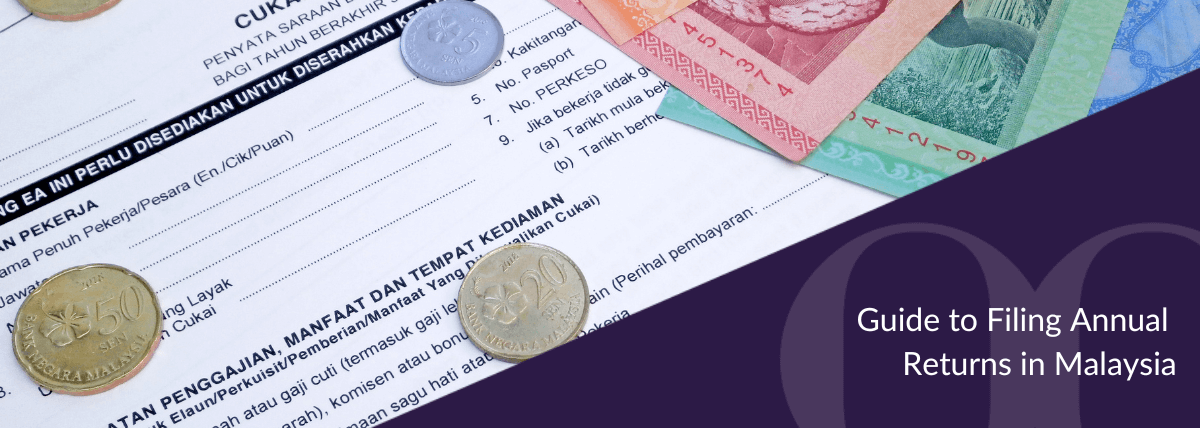
08 Jul 2024
Guide to Filing Annual Returns in Malaysia
Ensure compliance and maintain your business's integrity in Malaysia with this guide on filing annual returns effic …
READ MORE -

24 May 2024
10 Advantages of Outsourcing Your Payroll Services
Explore the benefits of outsourcing payroll and discover how outsourced payroll providers like BoardRoom can stream …
READ MORE -
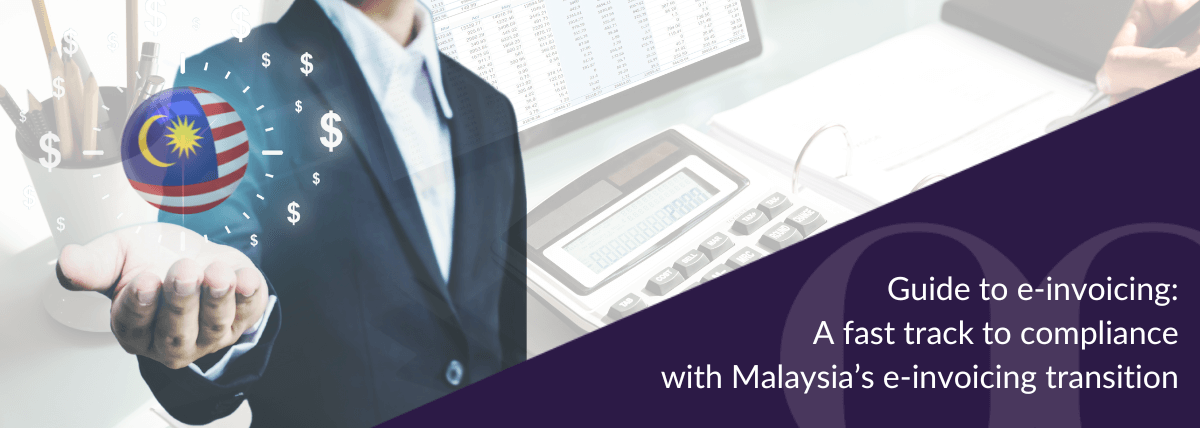
15 May 2024
Guide to e-invoicing: A fast track to compliance with Malaysia’s e-invoicing transition
Develop your understanding of what e-invoicing is with our ultimate guide. Here’s what you need to know about lev …
READ MORE
